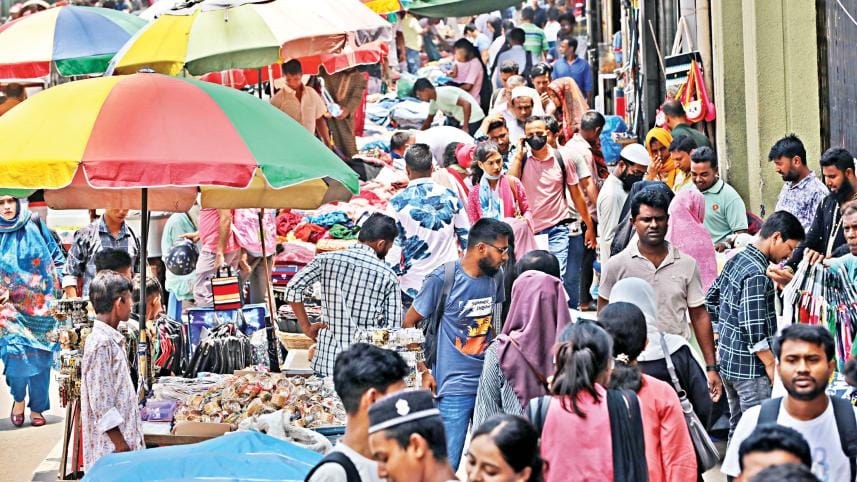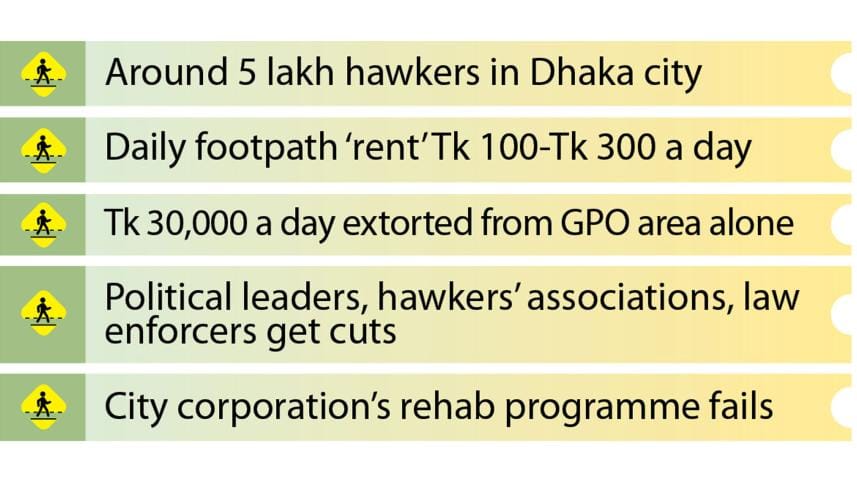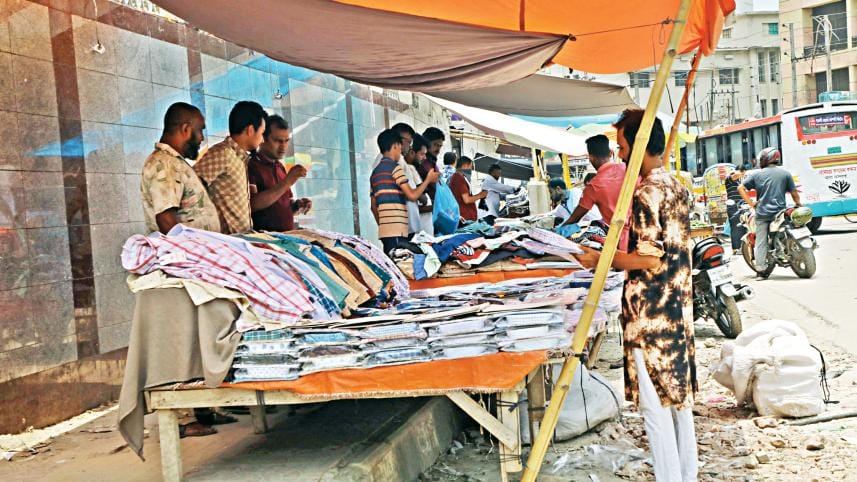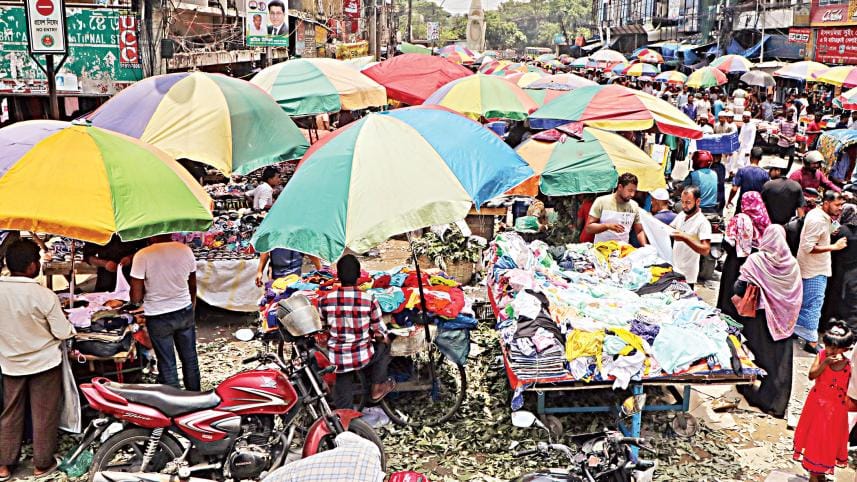Dhaka footpaths, a money-spinner for extortionists

On the footpath next to the General Post Office (GPO) in the capital, Sohel Howlader sells children's clothes from a small table.
He sits on a stool beside the table, roughly 5 feet long and 3 feet wide, and runs the business by paying Tk 150 to the ruling party and hawkers' association leaders every day. He also has to pay another Tk 150 a day to the security guards and for electricity.
When sales peak in the month of Ramadan and in the days before Puja, the "rent" jumps to Tk 250.

"All of us who have set up shops on the footpath pay these men," said Sohel.
There are around 100 such shops on the footpath adjacent to the post office, and as these correspondents asked around whether it would be possible to "rent" space, a leader of the vendor community named Monir Hossain said, "Bookings are already closed for this year. For next year, you will have to make a one-time payment of Tk 1.5 lakh, and then pay Tk 150 each day."
A space big enough for a stool and a table can be bought permanently for Tk 8-10 lakh, depending on how close it is to the GPO gate.
Monir, who according to locals is a ruling party supporter, assures that shopkeepers make a profit of at least Tk 300 a day, and the space is worth the investment.
Footpaths and roadsides in the city's busiest places like Gulistan, Farmgate, and Motijheel, are illegally occupied, and a lot of money changes hands every day to keep the system in place, according to sources in the hawkers' community.
This worsens congestion in the areas and makes pedestrians suffer.
Contacted, Enamul Haque, councillor of Ward-13, said political leaders, hawkers' associations, and the law enforcers receive a cut.
"We often evict the hawkers, but they come back. The city corporation tried a lot to free Gulshan of hawkers. But it didn't work out," he said.
At Motijheel Shapla Chattar, shops on footpaths and roadsides operate even on weekends. Depending on the size of the space, the hawkers pay between Tk 100 and Tk 300 a day. Ahead of festivals, the amount goes up to Tk 400.

Locals say former councillor Mominul Haque Sayeed's men take the money from shops between Kamalapur Railway Station and the northern side of Bangladesh Bank.
Sayeed, popularly known as Casino Sayeed, could not be contacted over the phone.
In November 2019, the Anti-Corruption Commission sued him amid reports that he ran illegal casinos in the city.
Hawkers on the other streets of Motijheel pay local ruling party leaders and police informants, sources said.
Those who have shops between the New Market and Elephant Road pay Tk 10,000-Tk 20,000 twice a year and Tk 150-Tk 300 every day.
Several hawkers said local Jubo League leader Golam Samiran was in control of the footpaths.
Samiran said the allegation was baseless.

ASM Ferdous Alam, councillor of Ward-18, said, "Political leaders in collusion with police extort the hawkers. I am not involved in such activities."
Aminul Islam, officer-in-charge of New Market Police Station, said, "We regularly evict the hawkers. We recently filed a case against extorters and we are investigating."
FIVE LAKH HAWKERS IN CITY
According to Bangladesh Hawkers' Sangram Parishad, there are 5 lakh hawkers.
President of the association Abul Hossain said, "The authorities evict hawkers without rehabilitating them. If there was a proper policy and system, the government could have earned a significant amount of revenue from them."
He added that his organisation was not involved in collecting money from the footpath occupiers.
Arif Chowdhury, president of Jatiya Hawkers' Federation, said, "We request the mayors to issue ID cards to hawkers and collect fees."
In October 2016, the then mayor of Dhaka South City Corporation Saeed Khokon raided footpaths in Gulistan, Paltan, Fulbaria, and Motijheel areas for several days.
The initiative ended amid protests by hawkers. Sheikh Fazle Noor Taposh, the current mayor, took steps to fix a time and place for hawkers. But the steps did not work either.
Mayor Taposh said, "We are conducting our regular drives against the illegal occupancy and it will continue."
Kh Mahid Uddin, additional commissioner (crime) of Dhaka Metropolitan Police, said, "We have already taken steps to rid the footpaths of illegal occupants. It may not be possible overnight."





 For all latest news, follow The Daily Star's Google News channel.
For all latest news, follow The Daily Star's Google News channel.
Comments